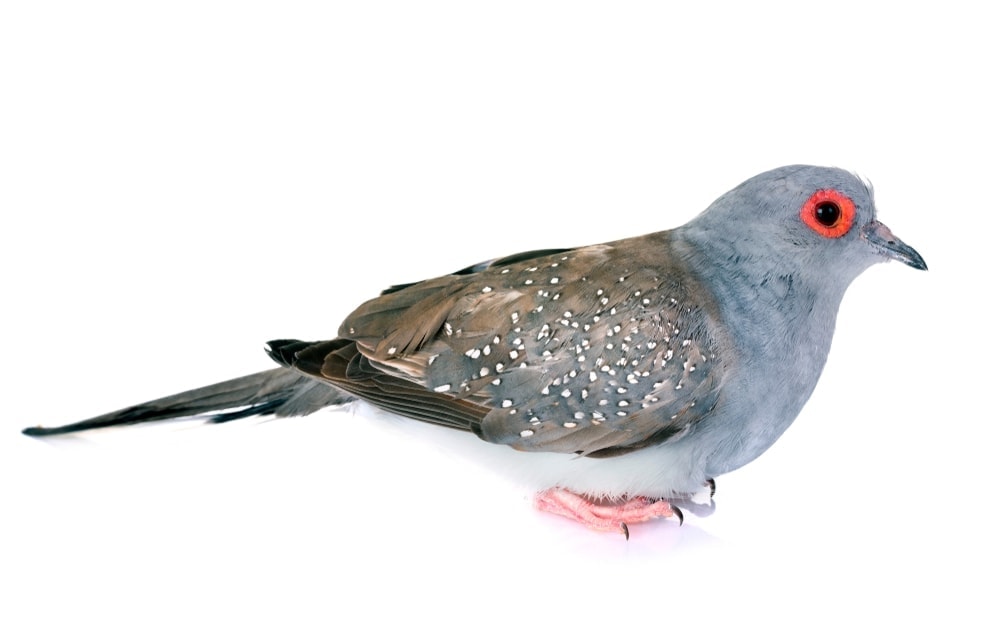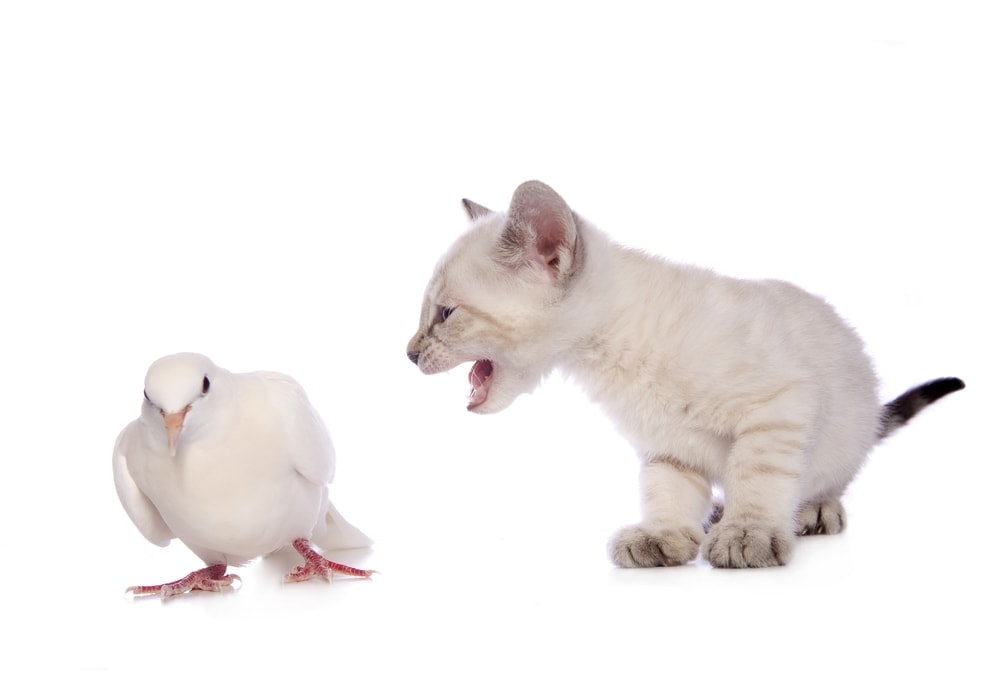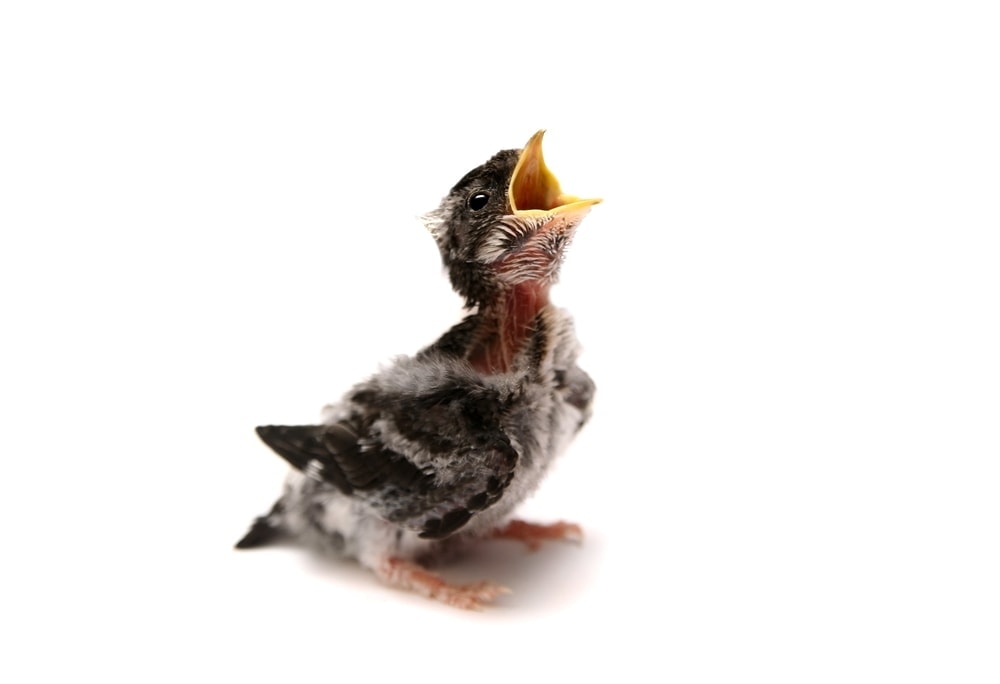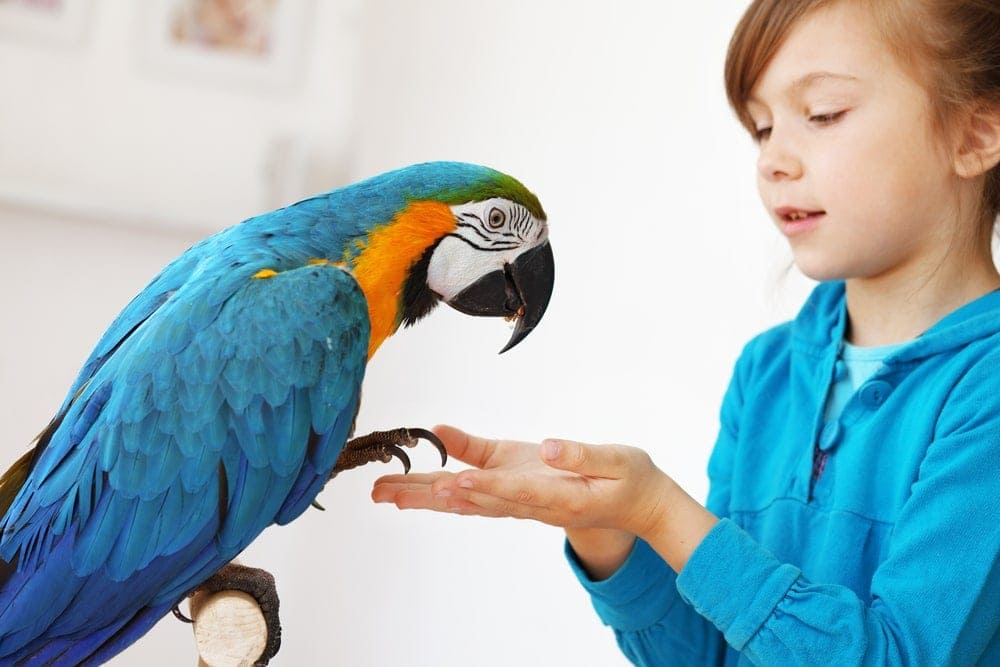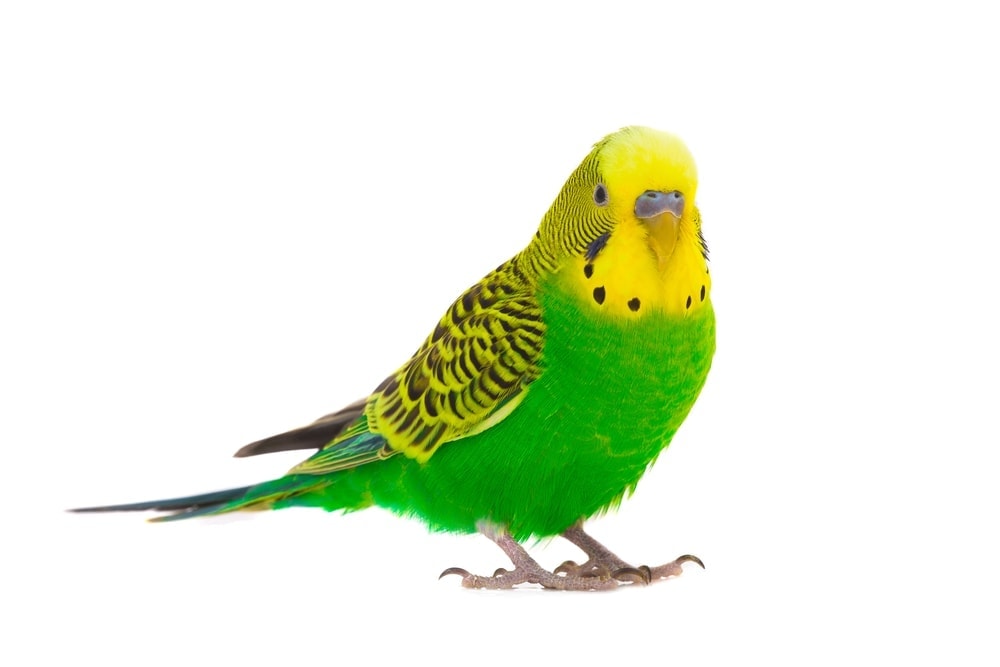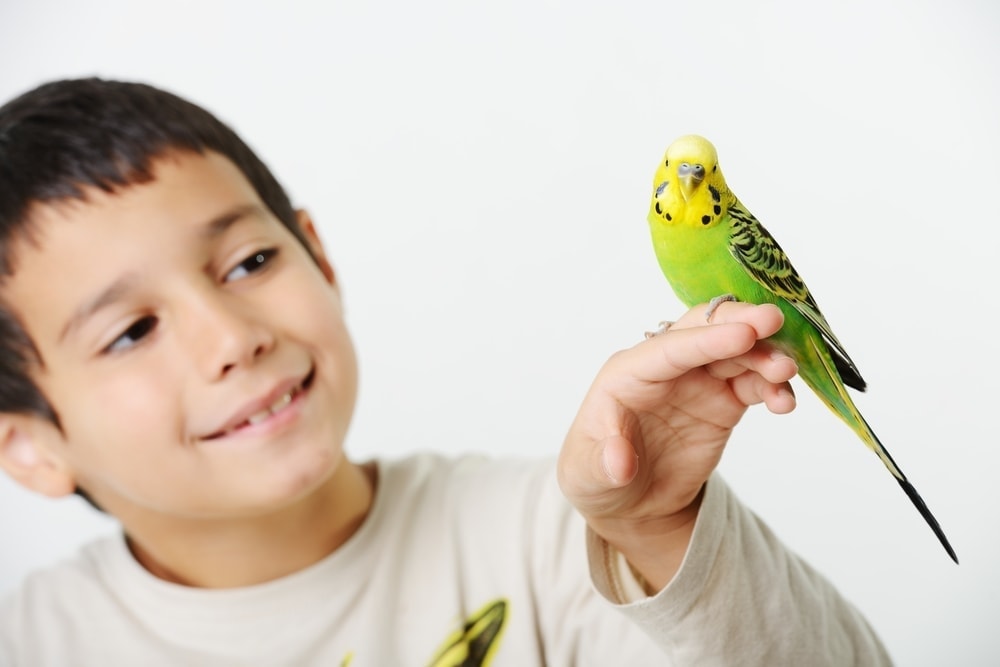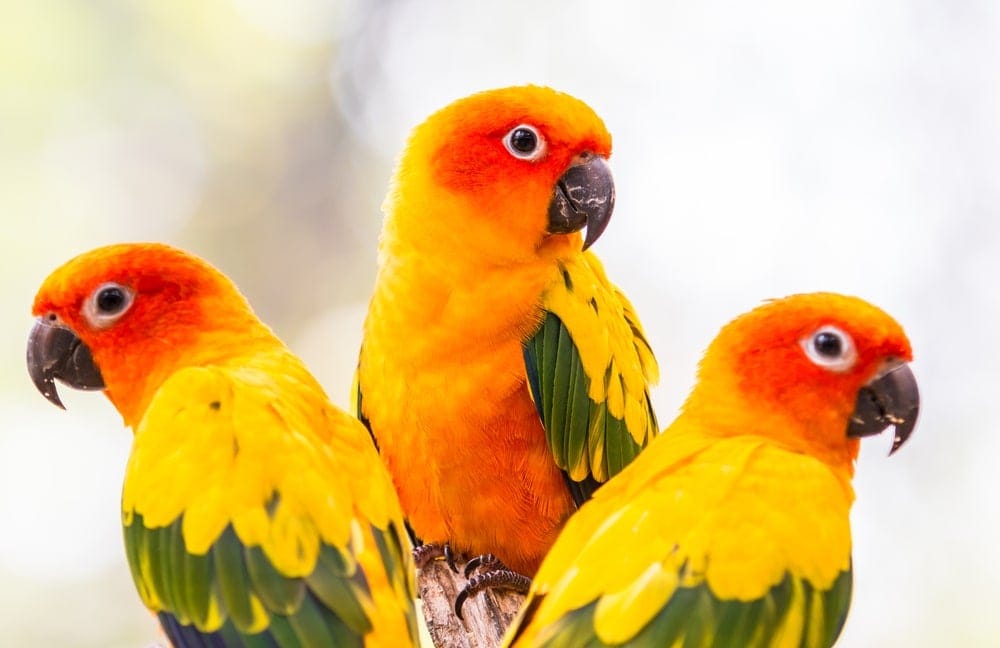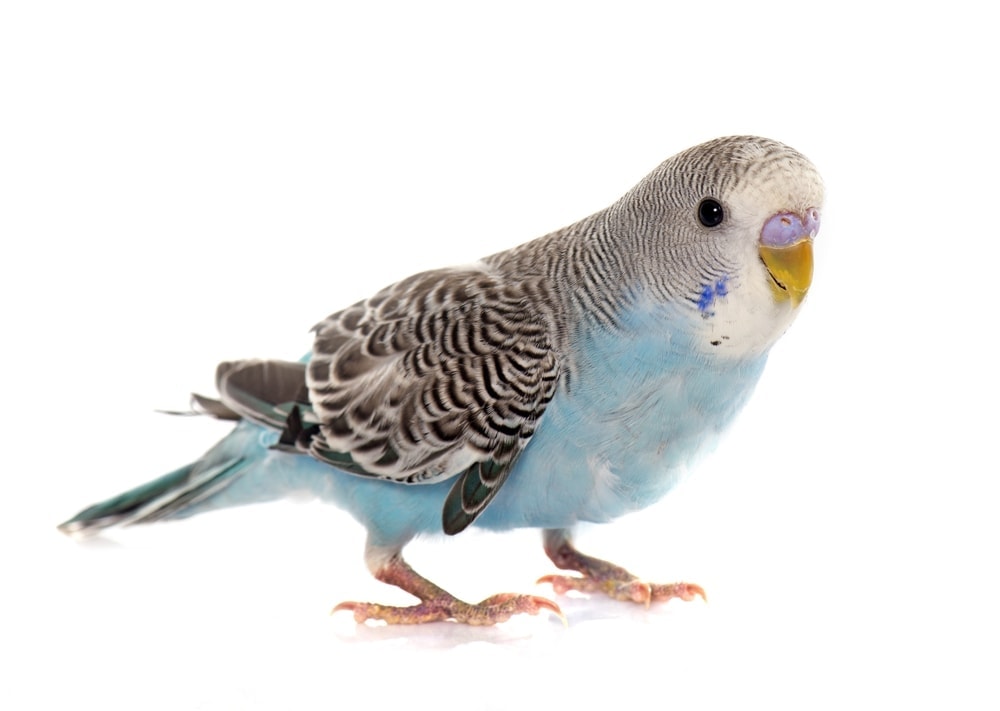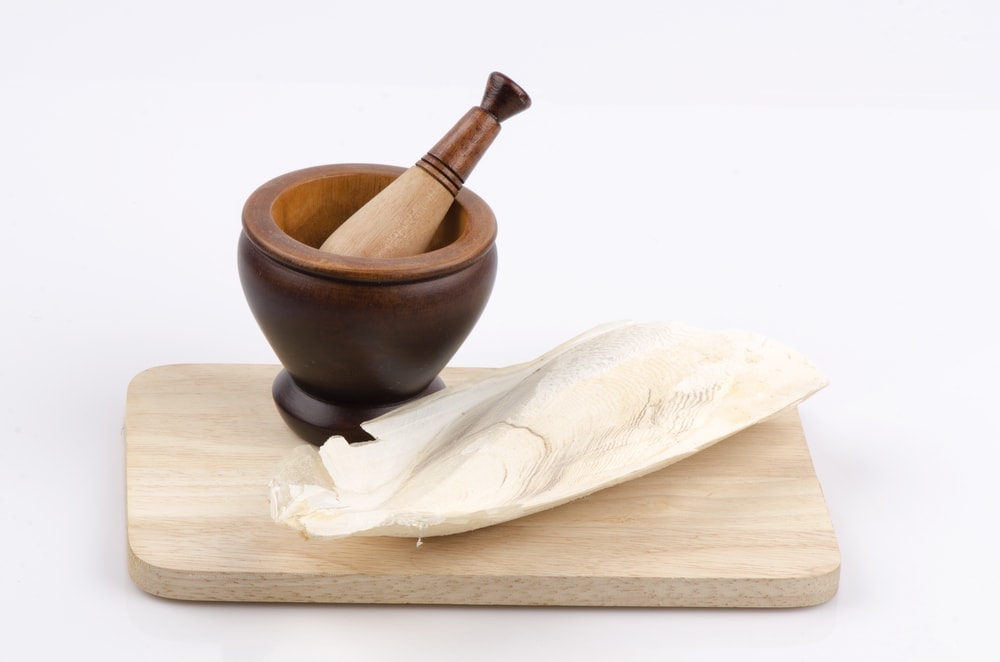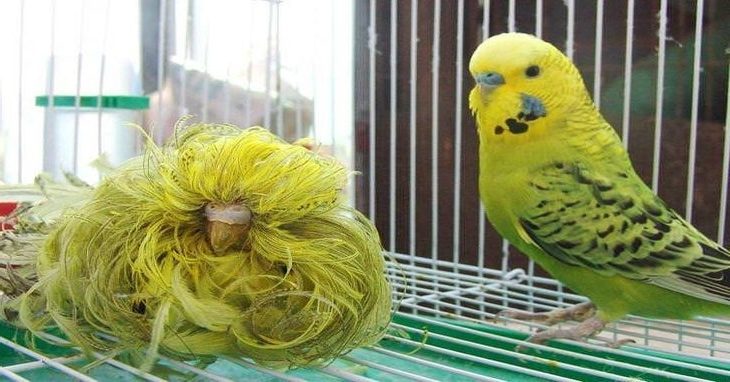Diamond doves are small but gorgeous birds with a lot to offer as pets.
They are a calming presence and don’t make all the racket that a parrot does.
Appearance
Diamond doves have a mostly grey body with speckles of white over their flight wings. They also have red-orange rings around their eyes, as well as black streaks under their wings.
These birds can be anywhere from 7.5 to 8.3 inches long and 23 to 32 grams when fully grown.
Diamond Dove Lifespan
The average lifespan of the Diamond dove is around 15 to 25 years when properly taken care of. This is a big difference from the 3-5 year lifespan that these birds have in the wild.
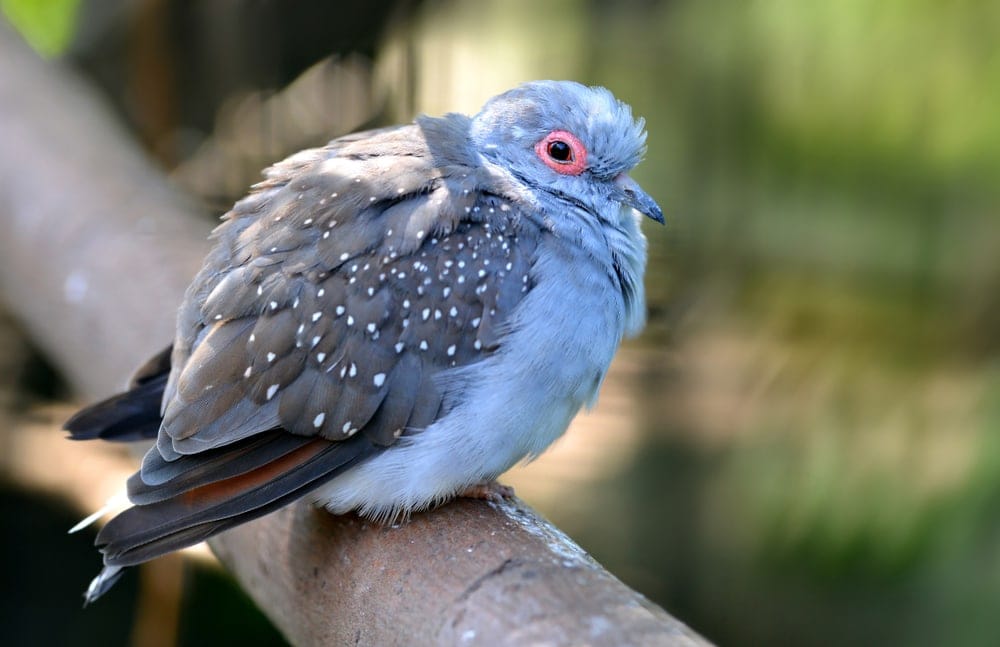
Types of Diamond Doves
There are a few different Diamond Dove mutations that you should be aware of, including:
- Blue Pied Diamond Dove: This particular mutation has white feathers on the neck, breast, and head feathers. As the name suggests, it also has a good amount of blue.
- Brilliant Diamond Dove: The Brilliant Diamond Dove has a mostly white coloration with bright red around the eyes.
- Blue Diamond Dove: The Blue Diamond Dove is the most common, featuring white spots against a mostly brown body.
The Diamond Dove’s Personality
These doves have a reputation for being very friendly and sociable, which is just one of the reasons they make such good pets. They tend to do well when kept with other smaller birds, even if they are not of the same species. You don’t want to keep your diamond doves with larger birds though, as aggressive behavior can quickly become a problem.
The very gentle overall temperament of these birds makes them an excellent choice if you have small children. They very rarely become aggressive, especially when they are properly tamed. Sometimes they will give their owner a light peck as a way of expressing their affection.
Natural Habitat
Diamond Doves are found in Australia in the semi-arid grassland savannah regions. They tend to travel in smaller flocks. This is the only place in the world where you can find these birds in the wild.
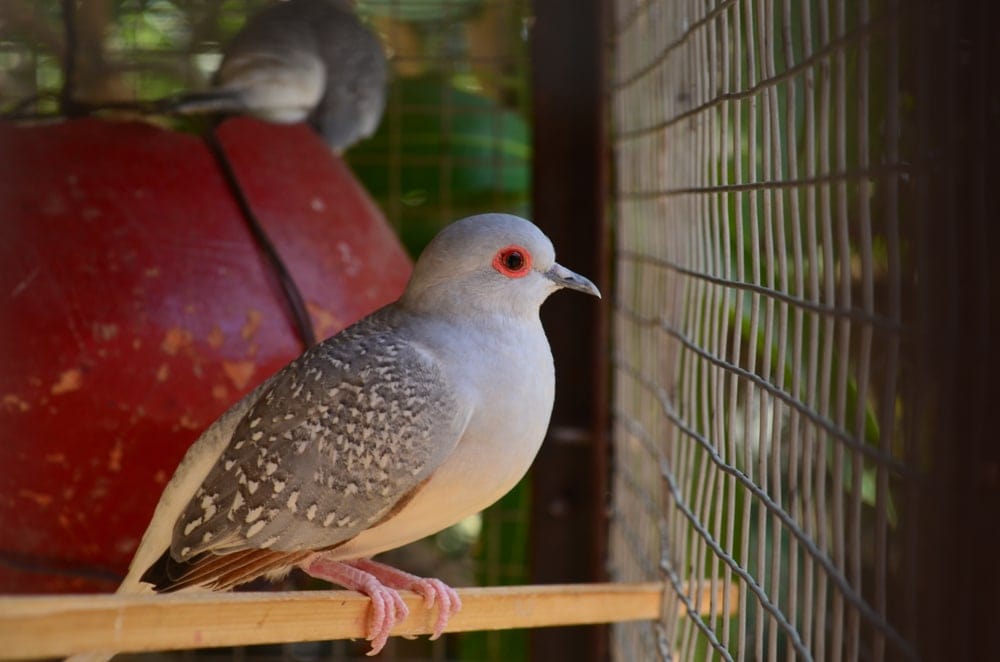
Diamond Dove Care Guide
1. Diamond Dove Diet
You’ll need to feed your diamond dove a combination of fruits, greens, and seed mixes. This will provide them with all of the nutrients needed to stay healthy over the long term. You can sometimes give your bird corn bread and sweet potatoes as treats. It is important to limit the amount of treats you give them, as they can quickly become obese.
Cuttlebone is also important for your bird to have on a fairly regular basis. This will provide them with the necessary calcium. Take the time to look for a high-quality feed mix to give your dove. There are lots of these options available, so you don’t want to choose just any of them.
You can also feed these birds the occasional insects, including ants. This nice balance of different foods will satisfy all of your dove’s nutritional needs.
2. Environment
The cage that you keep your doves in should not be any smaller than 13 by 15 by 17 inches. Make sure that the cage has a plastic base that is very sturdy. You should keep a minimum of two perches in the cage at any given time. These perches should each be a different size so that your bird’s feet don’t get sore.
It is very important that you have a wide cage for these birds, as they are unable to climb up the sides. This means that they need enough space to fly back and forth without any issues. If your dove doesn’t seem to have enough room to fly comfortably in its cage, you need to get a bigger one.
Doves are not able to survive very cold temperatures. This means that you should consider providing them with a basking rock in their cage just in case. It is very important that they stay at a normal temperature all of the time.
If you want to enable breeding, you will have to provide your dove with an adequate nest. This means having a top open nest basket with grass, twigs, and wool inside. It will provide them with a place to lay their eggs when the time is right.
3. Common Health Problems
Diamond doves can have problems with samlonellosis, pigeon pox, and parasitic worms. There are certain signs of illness to look for, including ruffled feathers, abnormal droppings, and problems keeping their balance. You will need to take your bird into the veterinarian right away if you notice any of these things.
4. Grooming
You should keep a bowl of water in your dove’s cage at all times so that it is able to bathe itself and stay clean. This is a crucial aspect of keeping a healthy bird at home. Make sure that you clean out the bowl every other day so that your bird does not contract a potentially deadly infection.
Diamond Dove Price
You can pay anywhere from $50 to a little over $100 for a Diamond Dove, depending on the color mutation. The age and overall health of the bird are also going to be factors that will affect the price you pay.
Conclusion
- The Diamond Dove is a very friendly bird with a gentle demeanor, making it a good pet choice for just about anyone.
- These birds need a balanced diet that consists of high-quality seed mixes, fruits, and greens.
- It is very important that your dove’s cage is big enough to where it can fly around unobstructed.
- These birds are very sensitive to cold temperatures, which is why you’ll want to get a basking rock for their cage.
- Make sure that you have two perches in the bird’s cage of different sizes and textures.
- Keep a bowl of water in your bird’s enclosure at all times so it can clean itself on a regular basis.
- If you noticed any ruffled feathers or signs of distress with your bird, you should take it to your veterinarian right away.
